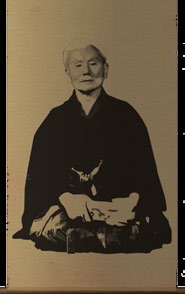A Quote by Georges Bernanos
When writing of oneself one should show no mercy. Yet why at the first attempt to discover one's own truth does all inner strength seem to melt away in floods of self-pity and tenderness and rising tears?
Related Quotes
The first beneficiary of compassion is always oneself. When compassion, or warmheartedness, arises in us and our focus shifts away from our own narrow self-interest, it is as if we open an inner door. It reduces fear, boosts confidence and brings us inner strength. By reducing distrust, it opens us to others and brings us a sense of connection to others, and sense of purpose and meaning in life.
It can take years of tears to melt the hardness that develops in this world, covering our tender, gentler inner selves. Tears for every devastating loss, tears for every humiliating failure, tears for every repeated mistake. Those who honor those tears, and even honor them, are not failures at love but rather its true initiates. First the pain and then the power. First the heart breaks and then it soars.
Cultivating care and concern for others gives rise to a kind of inner strength. No matter what difficulties or problems you face, in this wider context they’ll seem less significant and troubling to you. The inner strength, self-confidence and courage you gain by focussing on others’ needs instead of your own, brings with it a deep, calm sense of satisfaction.
Nowhere have I found words more powerful than those in the Psalms. Their fervid poetry cleanses one, gives one strength, brings hope in moments of darkness. Makes one look critically into oneself, convict oneself, and wash one's heart clean with one's own tears. It is the ever-burning fire of love, of gratitude, humility, and truth.
I tried to photograph the mysterious, true and magical soul of popular Spain in all its passion, love, humor, tenderness, rage, pain, in all its truth; and the fullest and most intense moments in the lives of these characters as simple as they are irresistible, with all their inner strength, as a personal challenge that gave me strength and understanding and in which I invested all my heart.
To Mercy Pity Peace and Love All pray in their distress, And to these virtues of delight Return their thankfulness. For Mercy Pity Peace and Love Is God our father dear. And Mercy Pity Peace and Love Is Man his child and care. Then every man of every clime That prays in his distress Prays to the human form divine: Love Mercy Pity Peace. And all must love the human form In heathen, Turk, or Jew. Where Mercy, Love and Pity dwell There God is dwelling too.
Not the least of the problems in clarifying one's consciousness is developing the stoic determination to criticize one's own softness or sentimentality toward oneself. Ego, self-solicitous about its own tenderness, is the ultimate policeman over its own false consciousness, dementedly uprooting every healthy seedling of insight into the truth. As Kierkegaard remarked, most people are subjective toward themselves and objective toward all others, but the real trick and task of life is to learn to be just the very opposite.
When there are no avenues of escape or one is caught even before any attempt to escape can be made, then for the first time the use of self-defense techniques should be considered. Even at times like these, do not show any intention of attacking, but first let the attacker become careless. At that time attack him concentrating one's whole strength in one blow to a vital point and in the moment of surprise, escape and seek shelter and help.
Truth, acceptance of the truth, is a shattering experience. It shatters the binding shroud of culture trance. It rips apart smugness, arrogance, superiority, and self-importance. It requires acknowledgment of responsibility for the nature and quality of each of our own lives, our own inner lives as well as the life of the world. Truth, inwardly accepted, humbling truth, makes one vulnerable. You can't be right, self-righteous, and truthful at the same time.

































